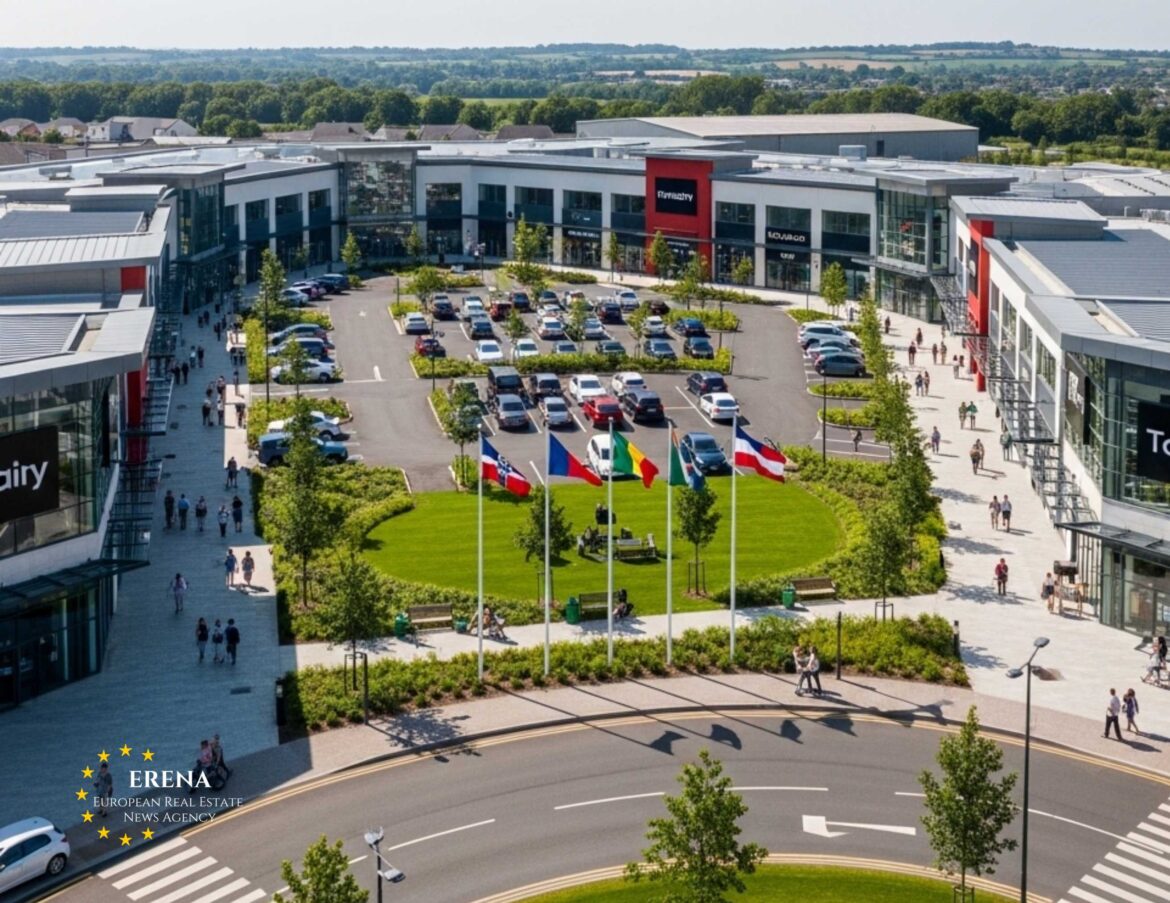In April 2025, Irish developer Marlet Property Group announced the sale of a portfolio of three major retail parks for a total of €120 million. The transaction has attracted significant interest from international investors and stands out as one of the most notable commercial real estate deals in Ireland in recent years.
Portfolio Overview
The portfolio consists of three prominent retail park assets:
- Belgard Retail Park in Tallaght, a suburb of Dublin
- M1 Retail Park in Drogheda, County Louth
- Poppyfield Retail Park in Clonmel, County Tipperary
Marlet acquired these properties in 2021 for €78 million from U.S.-based Marathon Asset Management. Since then, the company has implemented extensive upgrades, including infrastructure improvements, aesthetic refurbishments, and tenant mix optimization—efforts that have significantly increased the value and appeal of the assets.
Strong International Interest
The announcement of the sale has drawn the attention of a wide range of international investors, including asset managers and institutional funds from the U.S. and continental Europe. These entities are attracted by the portfolio’s quality, solid rental income, and strategic locations.
Ireland remains an attractive jurisdiction for real estate investments due to its economic stability and investor-friendly environment. Retail parks—particularly those focused on essential goods and services—continue to appeal to investors for their consistent footfall and long-term lease structures.
Financial Highlights
The expected transaction value of €120 million represents a significant uplift from Marlet’s initial investment, underlining the effectiveness of the company’s asset enhancement strategy. One of the most notable components of the portfolio, M1 Retail Park, includes 22 acres of undeveloped land, offering future development potential either for commercial or residential use.
The properties benefit from increased rental yields, higher occupancy rates, and the presence of anchor tenants such as large supermarkets and electronics chains. These factors enhance the portfolio’s attractiveness as a stable income-generating investment.
Irish Real Estate Market Trends
The Marlet transaction reflects a broader resurgence in Ireland’s commercial real estate market. After the slowdown caused by the pandemic, 2025 has seen a revival in investor activity. Transaction volumes in the first quarter of the year have significantly surpassed those of the same period in the previous year, pointing to renewed confidence in the market.
Investor focus has centered on resilient asset classes such as retail parks serving everyday consumer needs, prime office spaces in business hubs, and logistics properties. Retail parks located near transport corridors and densely populated areas are particularly sought-after.
Strategic Move for Marlet
For Marlet Property Group, the sale marks the successful completion of an investment cycle—acquisition, enhancement, and profitable exit. The proceeds are likely to be redirected into new ventures, including residential developments and mixed-use projects.
The deal also reinforces the notion that despite digital disruption and the rise of e-commerce, brick-and-mortar retail—especially essential goods-focused retail parks—continues to hold strong investment value.
Conclusion
Marlet’s €120 million retail park sale has not only secured a profitable outcome for the developer but also underscored Ireland’s rising profile in global real estate circles. The successful execution of the deal demonstrates the rewards of strategic asset management and reaffirms the ongoing investor appetite for stable, well-located retail properties.
As a benchmark transaction, it is likely to inspire similar activity across the sector and signal the beginning of a new growth phase in Ireland’s commercial property market throughout 2025 and beyond.

